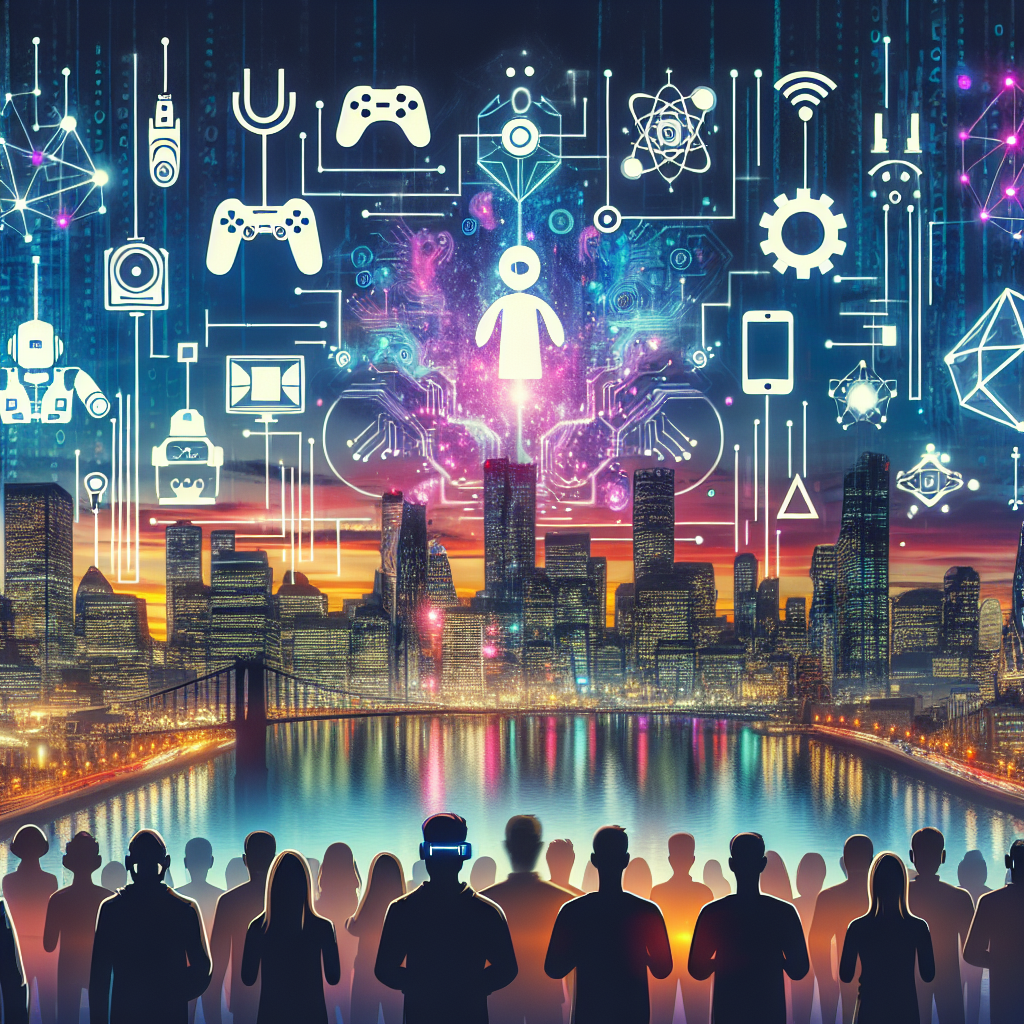Artificial Intelligence (AI) has been making significant strides in various industries, and the gaming and entertainment sector is no exception. From enhancing user experiences to creating more immersive environments, AI-driven solutions have the potential to revolutionize the way we interact with games and media.
One of the key areas where AI is making a significant impact is in improving game design and development processes. AI algorithms can analyze player behavior and preferences to create personalized gaming experiences. For example, AI can help developers understand how players interact with a game, what features they enjoy the most, and what aspects they find frustrating. This information can then be used to tailor the game to better meet the needs and preferences of players, ultimately leading to a more engaging and enjoyable experience.
AI can also be used to create dynamic and adaptive game environments. By analyzing player behavior in real-time, AI can adjust game difficulty levels, generate new challenges, and provide personalized recommendations to players. This not only keeps players engaged but also ensures that the gaming experience remains fresh and exciting.
In addition to improving game design, AI can also enhance the visual and audio elements of games and entertainment content. AI algorithms can generate realistic graphics, create lifelike animations, and produce high-quality sound effects. This can help create more immersive and realistic gaming experiences that draw players in and keep them engaged for longer periods of time.
Furthermore, AI can be used to optimize game performance and reduce loading times. By analyzing player behavior and hardware specifications, AI can adjust game settings in real-time to ensure smooth gameplay and minimize lag. This not only enhances the overall gaming experience but also improves player satisfaction and retention.
Another area where AI is making a significant impact is in content creation. AI algorithms can generate game levels, characters, and storylines, reducing the time and effort required to develop new content. This can help developers create more diverse and engaging gaming experiences, while also reducing costs and increasing efficiency.
AI-driven solutions are also being used to enhance multiplayer gaming experiences. By analyzing player behavior and preferences, AI can match players with similar skill levels, create balanced teams, and prevent cheating and toxic behavior. This not only improves the overall gaming experience but also helps foster a more positive and inclusive gaming community.
Overall, the potential of AI-driven solutions in gaming and entertainment is vast. From improving game design and development processes to enhancing visual and audio elements, optimizing performance, and creating dynamic and adaptive environments, AI has the power to transform the way we experience games and media.
FAQs:
Q: How is AI being used in game design and development?
A: AI algorithms are being used to analyze player behavior and preferences, create personalized gaming experiences, generate new challenges, and tailor game environments to better meet the needs and preferences of players.
Q: How can AI enhance the visual and audio elements of games?
A: AI algorithms can generate realistic graphics, create lifelike animations, and produce high-quality sound effects, leading to more immersive and realistic gaming experiences.
Q: How does AI optimize game performance?
A: By analyzing player behavior and hardware specifications, AI can adjust game settings in real-time to ensure smooth gameplay and minimize lag, improving the overall gaming experience and player satisfaction.
Q: How can AI help with content creation?
A: AI algorithms can generate game levels, characters, and storylines, reducing the time and effort required to develop new content and helping developers create more diverse and engaging gaming experiences.
Q: How does AI enhance multiplayer gaming experiences?
A: By analyzing player behavior and preferences, AI can match players with similar skill levels, create balanced teams, and prevent cheating and toxic behavior, improving the overall gaming experience and fostering a more positive and inclusive gaming community.

